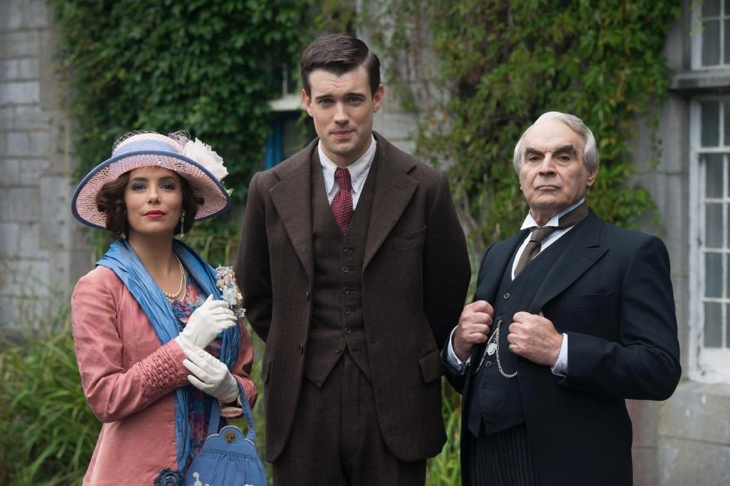A politician once told me ‘You should try to remember to try to encourage us when we get things right and not just scold us when we get things wrong.’ I’m not sure anyone could keep to that civil piece of advice when it comes to politicians. But it should certainly apply to broadcasters. The BBC comes in for plenty of stick, and rightly so at times. But in recent weeks it has done something wonderful.
Its adaptation of Decline and Fall – the third and last episode of which aired on Friday night – was a triumph. I had always assumed that this earliest of Evelyn Waugh’s novels was un-filmable. The plot is slightly sketchier, the characters slightly more limited than in Waugh’s later novels. Which isn’t to take away from the fact that it remains one of the funniest novels ever written. And now here, amazingly, was a near-perfect adaptation.
The cast was uniformly superb. Despite some initial misgivings (was he going to gurn and play it for laughs?) Jack Whitehall proved perfect for the lead role of Paul Pennyfeather. Meanwhile, Douglas Hodge stole every scene he was in – bringing all the lovable-horrible facets of Captain Grimes simultaneously to light. Even the performances that seemed a little much at first – Stephen Graham’s Philbrick, David Suchet’s Dr Fagan – grew as they went along. By the final episode the whole cast seemed to be moving to some heavenly (if also partly grotesque) harmony.
Of course if you love a novel, it is hard not to watch any adaptation partly by looking for the mistakes. Yet for me even the few of these proved forgivable. For instance, the scene in prison where Pennyfeather learns of the murder of his friend Prendergast (lately the prison chaplain) is famously transmitted in the book through the words of the hymn ‘Oh god, our help in ages past.’ For some reason the BBC version didn’t do the words as Waugh wrote them, though they did keep the brilliant conceit of the prisoners communicating with each other via the hymn. In the original Waugh has:
‘O God, our help in ages past,’ sang Paul.
‘Where’s Prendergast to-day?’
‘What, ain’t you ‘eard? ‘e’s been done in.’
‘And our eternal home.’
‘Old Prendy went to see a chap
What said he’d seen a ghost;
Well, he was dippy, and he’d got
A mallet and a saw.’
‘Who let the madman have the things?’
‘The Governor; who d’you think?
He asked to be a carpenter,
He sawed off Prendy’s head.
‘A pal of mine what lives next door,
‘E ‘eard it ‘appening;
The warder must ‘ave ‘eard it too,
‘E didn’t interfere.’
‘Time, like an ever-rolling stream,
Bears all its sons away.’
‘Poor Prendy ‘ollered fit to kill
For nearly ‘alf an hour
I’ve always found that section, particularly the reversion to the hymn’s proper lines at ‘Time like an ever-rolling stream’ (as though having your head sawn off by a maniac in a prison cell is just part of life’s rich tapestry) so funny that I haven’t been able to sing the hymn since I first read the novel (20 years ago, I see now from my copy) without corpsing.
Anyhow – they bottled giving Waugh’s version exactly, as they bottled a tiny number of other things. But it worked fantastically nonetheless, and I will more than forgive them for it. If the BBC can gather a cast of this calibre and make an adaptation able to please even the most pedantic fans, then the BBC is clearly doing something right. I’m tempted to say ‘for this be all thy sins forgiven.’ Which might be overdoing it, but this tour-de-force will certainly put any such sins to the back of the mind for a time.







Comments